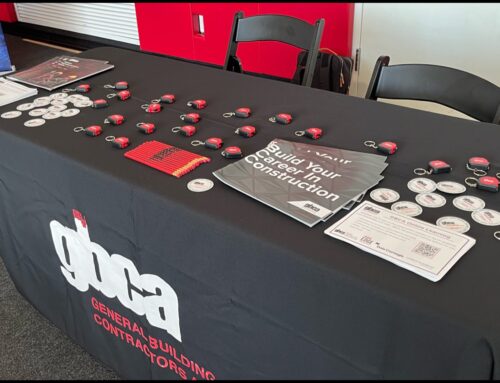This GBCA Safety Toolbox Talk discusses working with electricity and power tools. Click below to download the Toolbox Talk as a handout (includes Sign-In Sheet).
Working with Electricity and Power Tools
Due to the rugged nature of construction work, normal use of electrical equipment causes wear and tear that results in insulation breaks, short-circuits, and exposed wires. Without ground-fault protection, it can send potentially injuring or fatal current through a worker’s body.
One way to combat electrical shock and electrocution is to use ground-fault circuit interrupters (GFCIs). Use them on all 120-volt, single-phase, 15- and 20-ampere receptacles that are not on an existing building’s permanent wiring, or use an assured equipment grounding conductor program (AEGCP), and use distinctly marked double-insulated tools and equipment.
Electrical Safety Tips for Working with Power Tools:
- Inspect electrical equipment before use.
- Ensure that the path to ground is continuous.
- Test the GFCI before use.
- Remove from service any equipment with frayed cords, missing ground prongs, cracked tool casings, missing strain relief, etc.
- Do not remove ground prongs from electrical cords to fit into any electrical source.
- Avoid standing in wet areas when using portable electrical power tools.
REMEMBER: Electrical Incidents happen when electrical equipment’s power supply is not grounded or the path has been broken, and current travels through a worker’s body, causing electrical burns or death.
If a Colleague is Shocked:
- Look first. Don’t touch. The person may still be in contact with the electrical source. Touching the person may pass the current through you, making YOU a victim as well.
- Call or have someone else call 911 or emergency medical help. Give as many specifics as possible: the exact location of the victim, the victim’s condition, and what happened.
- Turn off the source of electricity. If not possible, move the source away from you and the shocked person with a non-conducting object. Wet wood can act as a conductor.
- Don’t touch burns, break blisters, or remove burned clothing. Electrical shock may also cause burns inside the body, so be sure the person is taken to a medical professional.
Remember to record the attendees of your toolbox talk!





